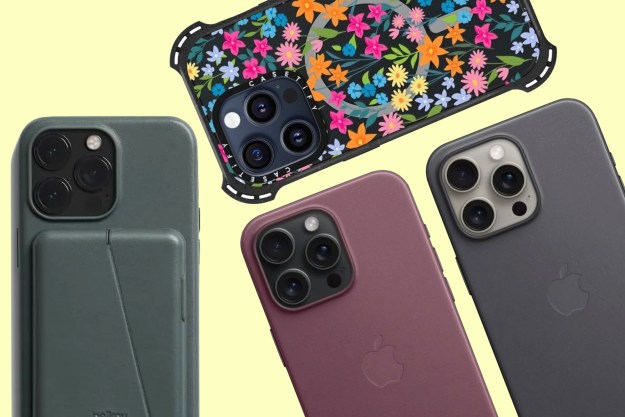
Apple has several products supposedly arriving over the next few months: an iPhone with a larger display, an iWatch, and an iPad Mini with a Retina display. But not one seems to be that magical. The iPhone is chasing competitors from Samsung to Nokia on display size, the iPad Mini is chasing the Nexus 7 (which is far cheaper) and likely the new Kindle on screen quality, and existing smartwatches aren’t exactly getting people to line up. At least there’s hope for this last one: People weren’t exactly lining up for MP3 players, smartphones or tablets before Apple did them, either. So there could be magic with the iWatch. It just seems unlikely, because I haven’t seen anything truly magical from Apple since Steve Jobs passed. That has me wondering: Is Apple still Apple without magical products?
Where did it go?
I’m not seeing anything really magical from any company at the moment. Google Glass is more geeky than magical, the new phablets from Samsung are huge but don’t seem to be drawing a crowd, and while the new Nexus 7 is selling out, I think that’s because folks see it as a great value. When has anyone seen an Apple product as a great value? Amazing, yes. Magical, yes. Good value, not so much …
In fact, you have to wander all the way over to a Tesla dealership to see anything approaching the kind of magic that Apple products used to have.
So do Apple products suck?
Honestly, some kind of do at the moment. If you have an iPhone and connect to an Exchange mail service, you’ve likely recently discovered your calendar and mail items are “magically” disappearing. Not exactly the kind of magic I was hoping for. If you have an iPhone or an iPad mini, you have a device which clearly lags behind competing Android devices on voice response and screen size, and a Nokia on camera quality. In fact, given the fact that two people have been electrocuted using iPhones last month, it is kind of amazing iPhones are selling well at all (there was a third in Australia). I’m still trying to get my head around these phenomena: How the hell is it even possible to pass enough current through a working iPhone to significantly shock, let alone kill someone? It should be impossible but, for whatever reason, currently the one feature the iPhone has that no one else can duplicate is the electrocution feature. By the way, given what our intelligence agencies have been accused of doing over the last few weeks, it wouldn’t surprise me at all to find out one of them had rigged some phones to kill people. Yes, I’m getting a wee bit paranoid.
Currently the one feature the iPhone has that no one else can duplicate is the electrocution feature.
Hot products
Let’s go down a list of products that appear to be selling out. We have the new Moto X phone, which you can customize and has a better voice solution than Siri; we have the new Nexus 7, which kicks the iPad mini’s butt; we have the Nokia 1020, which has the killer (metaphorically) camera; we have Google Chromecast, which has already sold so well that Google had to kill the incentive program around it. For the most part, Google is just kicking Apple’s butt up and down the playground, and it isn’t a pretty sight.
No magic, no Apple
I was recently at a meeting of analysts and vendors, and got into a conversation about Apple with one of the ex-Apple executives at the meeting. I got the sense that Tim Cook was hired because he was good at everything Jobs didn’t like to do, and Phil Schiller was basically Jobs’ internal fan club chairman. In other words, you really don’t have a viable company without someone doing what Jobs did. Both executive management and marketing hinged on Steve Jobs’ presence, and the guy’s skill set just hasn’t been replaced. Jobs was Apple’s magician. When he left Apple the first time in the 1980s, Apple apparently failed to learn that it needs a magician, someone who can put magic back in the products. Unlike any other CEO, Jobs focused like a laser on the consumer, not stockholders or financial analysts or IT buyers. Tim Cook clearly isn’t that guy, and until we get a person like that back in Apple, Apple isn’t that company anymore either.
Editors' Recommendations
- Why you should buy the iPhone 15 Pro instead of the iPhone 15 Pro Max
- There’s a big problem with the iPhone’s Photos app
- 10 iPhone productivity apps you need to download right now
- Why you should buy the iPhone 15 Pro Max instead of the iPhone 15 Pro
- This one thing could make iOS 18 the best iPhone update in years


